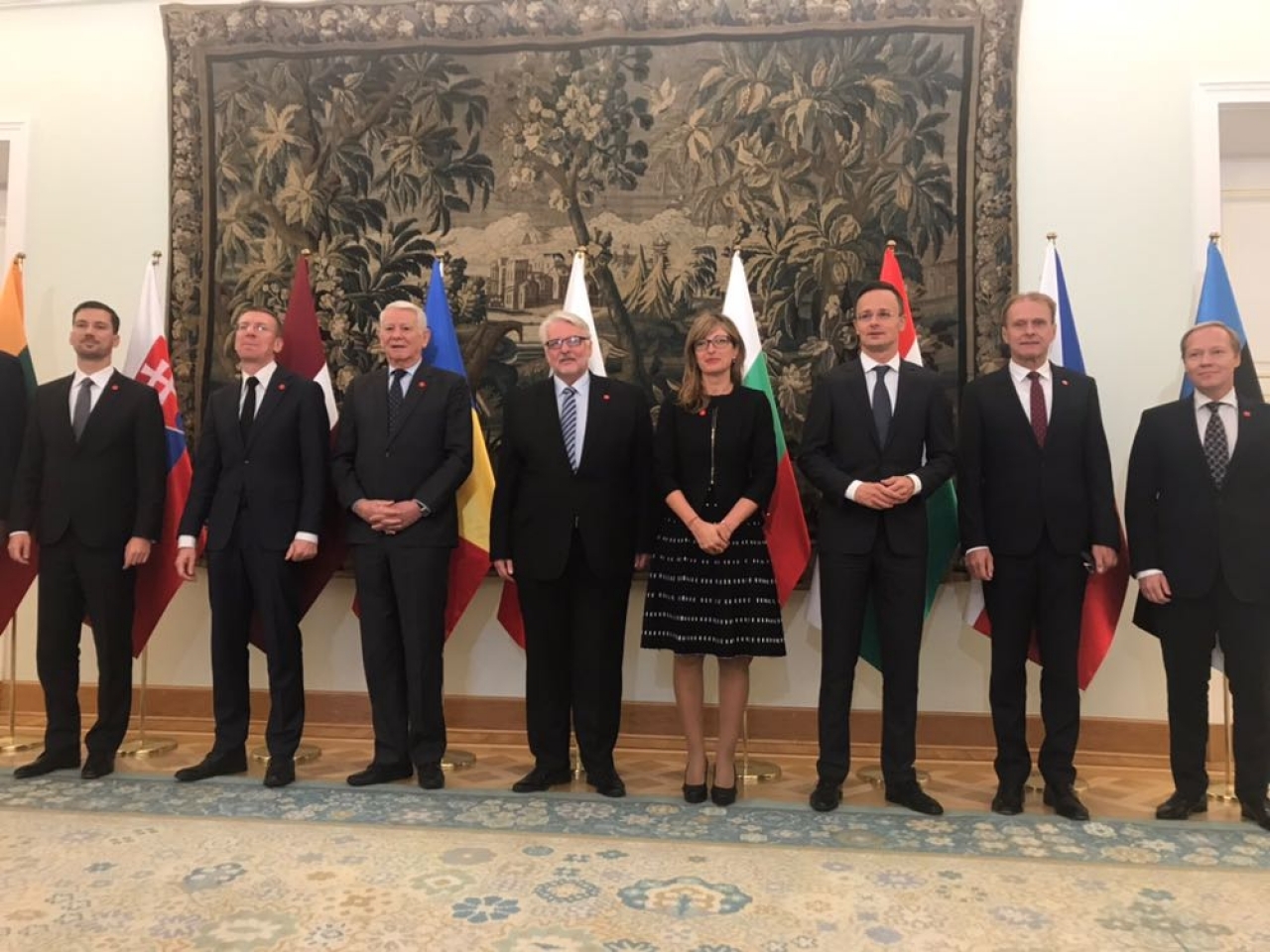Foreign ministers of NATO eastern flank countries: ‘We are resolved to support the stability of the Western Balkans’
09 October 2017 News
Full support for the stability and Euro-Atlantic prospects of the Western Balkan countries, the strengthening of practical cooperation with NATO's eastern partners, and a call on Russia to observe the Minsk agreements.
These are the highlights of a joint statement of the foreign ministers of the nine NATO eastern flank countries who gathered together in the Polish capital, Warsaw. Bulgaria was represented by Deputy Prime Minister and Minister of Foreign Affairs Ekaterina Zaharieva.
The top diplomats of Bulgaria, Estonia, Lithuania, Latvia, Poland, Romania, Slovakia, the Czech Republic and Hungary gathered for a Bucharest 9 Format meeting for a second time to discuss the new threats and challenges to the security in the region.
In their joint statement the foreign ministers pay special attention to the partners of the Western Balkans given that their Euro-Atlantic integration is a leading foreign political priority of the Bulgarian Government and the country’s future Presidency of the EU Council. “We stress our determination to help the stability and security of the Western Balkans and our wish to cooperate with the countries willing to join NATO. We welcome Montenegro's entry in NATO, which shows that the North Atlantic Alliance's doors are open,” reads the joint declaration. The ministers were unanimous that the accession to the EU and NATO is an important incentive for reforms in the Balkan countries.
“Bulgaria actively and consistently supports the Euro-Atlantic integration of its neighbours in the Western Balkans. We hope that these countries' governments will observe a policy of overcoming the differences with their neighbours and will implement the necessary reforms,” Minister Zaharieva stressed in her statement. She gave as an example of positive development in the region the Treaty on Friendship, Goodneighbourliness and Cooperation between Bulgaria and the Republic of Macedonia.
In Warsaw, the foreign ministers underscored that they will continue to support NATO’s eastern partners, Ukraine, Georgia and the Republic of Moldova, in their efforts to cope with the security challenges. The participants in the Warsaw meeting also made a call on Russia to observe the Minsk agreements.
“Conducting a full-fledged dialogue with Russia is a part of the overall approach for guaranteeing security. We should keep our communication channels open, including on issues such as the hybrid threat and Afghanistan,” Zaharieva stressed. It was highlightedthat military exercises like West 2017 organised by the Russian Federation and Belarus does not contribute to security and stability.
The ministers singled out the cyberattacks and the hybrid tactics of influence targeted at the sovereignty of separate countries among the new asymmetric threats to the region. The diplomats were unanimous about the need of strengthening the joint efforts within NATO to address these challenges.
The foreign ministers also discussed the 2018 NATO Summit and the contribution of the B-9 countries to the development of common positions.
